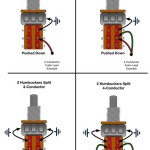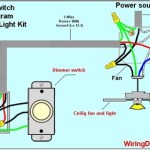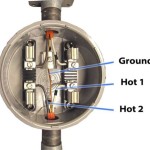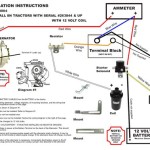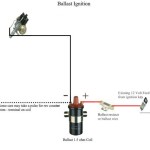Copper’s electrical conductivity, malleability, and durability make it ideal for wiring. Its use dates back to the early days of electricity, when Samuel Morse used it in his telegraph.
Copper’s low electrical resistance allows for efficient current flow, while its flexibility makes it easy to work with. Its corrosion resistance ensures longevity even in harsh environments.
This article examines the history, applications, and advantages of copper in electrical wiring, providing a comprehensive understanding of its indispensable role in modern electrical systems.
Understanding the key aspects of “Why Is Copper Used For Most Electrical Wiring” is crucial for comprehending its importance and applications. These aspects explore the unique properties and benefits of copper, making it the preferred choice for electrical wiring.
- Conductivity: Copper’s high electrical conductivity ensures efficient current flow with minimal energy loss.
- Malleability: Its flexibility allows for easy bending and shaping, simplifying installation and maintenance.
- Durability: Copper’s resistance to corrosion and wear ensures longevity even in harsh environments.
- Strength: Its mechanical strength withstands pulling and tension during installation and operation.
- Availability: Copper is a relatively abundant resource, ensuring a stable supply for electrical applications.
- Affordability: Compared to other conductive materials, copper offers a cost-effective solution for electrical wiring.
- Reliability: Copper’s proven track record in electrical systems demonstrates its dependability and performance.
- Solderability: Its ability to form strong solder joints ensures secure connections and long-lasting performance.
- Recyclability: Copper’s high scrap value and recyclability contribute to environmental sustainability.
- Historical Significance: Copper’s use in electrical wiring dates back to the early days of electricity, showcasing its enduring suitability.
These aspects collectively highlight the advantages and importance of copper in electrical wiring, explaining its widespread adoption and continued relevance in modern electrical systems.
Conductivity
In electrical wiring, copper’s high electrical conductivity plays a crucial role in ensuring efficient current flow. Its low electrical resistance allows electrons to move freely, minimizing energy loss during transmission. This efficient energy transfer is essential for various applications, including power distribution, data communication, and electronic devices.
The high conductivity of copper makes it an ideal choice for long-distance power transmission lines, where energy loss due to resistance can be significant. In data communication, copper cables are commonly used for high-speed internet and telecommunication networks, as they can transmit data signals with minimal distortion and loss.
Furthermore, copper’s conductivity is crucial in electronic devices, such as computers, smartphones, and circuit boards. It enables efficient current flow within these devices, ensuring and preventing overheating due to excessive energy loss.
Malleability
The malleability of copper, which allows for easy bending and shaping, is a crucial factor contributing to its widespread use in electrical wiring. This flexibility simplifies the installation and maintenance of electrical systems, making it a practical and cost-effective choice.
During installation, copper wires can be easily bent and shaped to fit into tight spaces or around obstacles, reducing the need for complex routing or additional components. This flexibility is particularly advantageous in confined spaces, such as electrical panels, junction boxes, and behind walls, where rigid wires would be difficult or impossible to maneuver.
Moreover, the malleability of copper facilitates maintenance and repair tasks. When changes or additions to an electrical system are necessary, copper wires can be easily adjusted or reconfigured without the risk of damage. This flexibility allows for quick and efficient modifications, minimizing downtime and maintenance costs.
In summary, the malleability of copper is an integral part of its suitability for electrical wiring. It simplifies installation, reduces the need for complex routing, and facilitates maintenance and repair tasks, making it a practical and cost-effective choice for a wide range of electrical applications.
Durability
Within the context of “Why Is Copper Used For Most Electrical Wiring,” the aspect of durability plays a crucial role. Copper’s resistance to corrosion and wear ensures the longevity of electrical wiring systems, even in challenging environmental conditions.
- Corrosion Resistance: Copper’s inherent resistance to corrosion, particularly oxidation, makes it suitable for use in humid or wet environments. This prevents the degradation of electrical connections and ensures reliable performance over extended periods.
- Wear Resistance: Copper’s high resistance to wear and abrasion makes it ideal for applications subject to mechanical stress or vibration. This durability ensures the integrity of electrical connections and prevents premature failure.
- Temperature Tolerance: Copper can withstand a wide range of temperatures without compromising its electrical properties. This makes it suitable for use in both extreme cold and high-temperature environments.
- Chemical Resistance: Copper’s resistance to many chemicals, including acids and alkalis, makes it suitable for use in industrial and chemical environments where exposure to corrosive substances is a concern.
In summary, the durability of copper, characterized by its resistance to corrosion, wear, temperature extremes, and chemicals, is a key factor contributing to its widespread use in electrical wiring. This durability ensures the longevity and reliability of electrical systems, even in harsh and demanding environments.
Strength
The mechanical strength of copper is a key factor contributing to its widespread use in electrical wiring. Copper’s ability to withstand pulling and tension during installation and operation ensures the integrity and reliability of electrical systems.
During installation, copper wires are often subjected to pulling forces to route them through conduits, walls, and other spaces. The mechanical strength of copper prevents the wires from breaking or stretching excessively, allowing for proper installation without compromising their electrical properties.
Furthermore, during operation, electrical wires may experience tension due to thermal expansion, vibration, or accidental movement. Copper’s mechanical strength ensures that the wires can withstand these forces without becoming loose, damaged, or causing short circuits. This is particularly important in high-power applications, such as industrial machinery and power distribution systems, where
The strength of copper has practical applications in various industries. In construction, copper wires are used in electrical wiring systems for buildings, where they must withstand the pulling forces during installation and the rigors of daily use.
In the automotive industry, copper wires are used in electrical harnesses, which are subjected to vibration and temperature extremes. Copper’s mechanical strength ensures the reliability of these harnesses, even in harsh operating conditions.
In summary, the mechanical strength of copper is a critical aspect contributing to its use in electrical wiring. It allows for proper installation, withstands tension during operation, and ensures the long-term reliability of electrical systems across various industries.
Availability
Within the context of “Why Is Copper Used For Most Electrical Wiring,” the aspect of availability plays a crucial role in ensuring the widespread use and reliability of copper in electrical applications.
- Global Reserves: Copper is the third most abundant non-ferrous metal, with significant reserves distributed across various regions of the world. This abundance ensures a stable supply of copper for electrical wiring and other industrial applications.
- Production Capacity: The global copper production capacity has steadily increased over the years, meeting the growing demand for copper in various sectors, including electrical wiring. This increased production capacity helps maintain a stable supply of copper, preventing shortages and price fluctuations.
- Recycling: Copper is a highly recyclable material, with a significant portion of the copper used in electrical wiring being recycled at the end of its lifespan. Recycling contributes to the availability of copper for electrical applications, reducing the need for new copper mining and extraction.
- Substitution: Copper’s unique properties and performance make it difficult to substitute with other materials in electrical wiring applications. This lack of viable substitutes further emphasizes the importance of copper availability for the electrical industry.
In summary, the availability of copper, coupled with its global reserves, production capacity, recyclability, and lack of suitable substitutes, ensures a stable supply of copper for electrical wiring applications. This availability is a key factor contributing to the widespread use of copper in electrical systems worldwide.
Affordability
The affordability of copper in comparison to other conductive materials is a significant factor contributing to its widespread use in electrical wiring. Copper’s cost-effectiveness allows it to be utilized in a variety of electrical applications, making it a practical and accessible choice for many industries and consumers.
In the electrical industry, copper’s affordability makes it a viable option for large-scale projects, such as power distribution systems and commercial buildings. Compared to other conductive materials, such as silver or gold, copper offers a cost-effective solution that meets the required electrical conductivity and durability standards without significantly increasing the overall project cost.
In addition to its affordability, copper’s cost-effectiveness is further enhanced by its durability and long lifespan. Copper’s resistance to corrosion and wear ensures that electrical wiring systems using copper can last for decades, reducing the need for frequent replacements or repairs. This durability translates into long-term cost savings, making copper a cost-effective investment over the lifetime of an electrical system.
Furthermore, the availability of copper and its well-established supply chain contribute to its affordability. Copper is a relatively abundant resource with a stable global supply, which helps to maintain its cost-effectiveness. The availability of recycled copper also helps to reduce the overall cost of copper for electrical wiring, making it a sustainable and economical choice.
In summary, the affordability of copper compared to other conductive materials is a key factor driving its widespread use in electrical wiring. Copper’s cost-effectiveness, durability, and availability make it a practical and economical choice for a wide range of electrical applications, from small-scale residential wiring to large-scale industrial projects.
Reliability
The reliability of copper in electrical systems is a key factor contributing to its widespread use in electrical wiring. Copper’s proven track record demonstrates its dependability and performance, making it a trusted choice for a variety of electrical applications.
Copper’s reliability stems from its inherent properties, such as its high electrical conductivity, corrosion resistance, and mechanical strength. These properties ensure that copper can withstand the rigors of electrical systems, including voltage fluctuations, temperature changes, and mechanical stress.
In real-life applications, copper’s reliability has been proven over decades of use in electrical wiring. Copper wiring can be found in countless homes, offices, factories, and other buildings, where it has consistently provided safe and efficient power distribution.
The reliability of copper is particularly important in critical applications, such as power plants, hospitals, and data centers. In these applications, downtime can have severe consequences, and the dependability of copper plays a vital role in ensuring uninterrupted operation.
Understanding the connection between copper’s reliability and its use in electrical wiring provides valuable insights into the importance of this material in electrical systems. Copper’s proven track record demonstrates its dependability and performance, making it the preferred choice for a wide range of electrical applications.
Solderability
Within the context of “Why Is Copper Used For Most Electrical Wiring,” the aspect of solderability plays a crucial role in ensuring the reliability and longevity of electrical connections. Copper’s ability to form strong solder joints is essential for creating secure and durable connections, which are vital for the proper functioning of electrical systems.
- Formability: Copper’s malleability allows it to be easily shaped and molded, facilitating the creation of precise solder joints. This formability ensures a snug fit between the copper wire and the solder, preventing gaps or voids that could weaken the connection.
- Wettability: Copper’s high surface energy allows solder to easily spread and adhere to its surface, forming a strong bond. This wettability ensures that the solder joint is cohesive and resistant to mechanical stress.
- Interfacial Strength: The bond formed between copper and solder creates a strong interface that can withstand the rigors of electrical systems, including temperature fluctuations, vibration, and mechanical stress. This interfacial strength ensures the long-lasting performance of the solder joint.
- Corrosion Resistance: Copper’s natural resistance to corrosion helps protect the solder joint from environmental factors such as moisture and oxidation. This corrosion resistance ensures the integrity of the connection over time, preventing failures due to corrosion.
In summary, copper’s solderability, characterized by its formability, wettability, interfacial strength, and corrosion resistance, is a key factor contributing to the widespread use of copper in electrical wiring. By forming strong and durable solder joints, copper ensures the reliability and longevity of electrical connections, making it an essential material for a wide range of electrical applications.
Recyclability
Within the context of “Why Is Copper Used For Most Electrical Wiring,” the aspect of recyclability plays a vital role in promoting environmental sustainability. Copper’s high scrap value and ease of recycling contribute to a circular economy, reducing the need for new copper extraction and minimizing waste.
- Resource Conservation: Recycling copper helps conserve natural resources by reducing the demand for new copper mining. This reduces the environmental impact associated with mining activities, including habitat destruction, soil erosion, and water pollution.
- Reduced Greenhouse Gas Emissions: Copper recycling requires significantly less energy compared to extracting and processing new copper from ores. This reduction in energy consumption leads to lower greenhouse gas emissions, contributing to the fight against climate change.
- Waste Reduction: Recycling copper diverts a significant amount of copper waste from landfills, reducing the strain on waste management systems and conserving valuable landfill space.
- Economic Benefits: Recycling copper not only benefits the environment but also has economic advantages. The high scrap value of copper provides an incentive for recycling, creating jobs and supporting a circular economy.
In summary, the recyclability of copper, coupled with its high scrap value, contributes to environmental sustainability by conserving resources, reducing greenhouse gas emissions, minimizing waste, and offering economic benefits. These factors collectively reinforce the importance of copper in sustainable electrical wiring practices.
Historical Significance
Within the context of “Why Is Copper Used For Most Electrical Wiring,” the historical significance of copper holds immense relevance. Copper’s enduring suitability in electrical wiring has been demonstrated since the dawn of electricity, solidifying its position as the preferred choice for electrical applications.
- Pioneer of Electrical Wiring: Copper was among the first materials used for electrical wiring, employed by pioneers such as Thomas Edison in his early experiments with electric lighting. Its high conductivity and malleability made it an ideal choice for early electrical systems.
- Proven Performance: Over a century of use in electrical wiring has proven copper’s reliability and effectiveness. Its resistance to corrosion and ability to withstand harsh conditions ensure longevity and stable performance in electrical systems.
- Technological Advancements: As electrical technology advanced, copper remained the preferred choice for wiring due to its ability to adapt to evolving needs. From telegraph systems to modern-day high-speed data transmission, copper has consistently met the demands of changing technologies.
- Infrastructure Development: The widespread adoption of copper in electrical wiring has played a crucial role in the development of electrical infrastructure worldwide. Copper’s availability and cost-effectiveness have enabled the electrification of homes, businesses, and cities, contributing to economic growth and technological progress.
These historical facets underscore the enduring suitability of copper in electrical wiring. Its early adoption, proven performance, adaptability to technological advancements, and role in infrastructure development solidify copper’s position as the preferred choice for electrical wiring, continuing to shape the electrical landscape even today.










Related Posts

